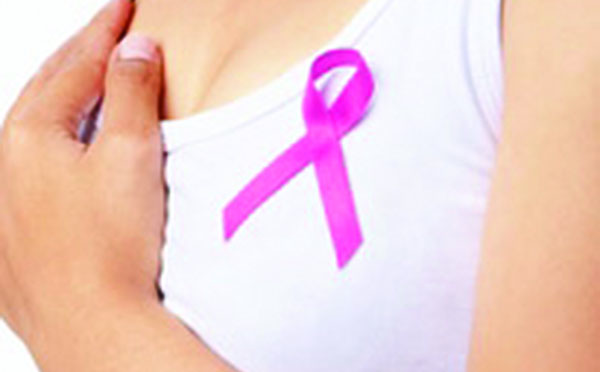By Allan Bucka Jones
PRIDE Health Columnist
Black women are at greater risk of dying from early-stage breast cancer when compared with women of other races and ethnicities.
Other well known risk factors for breast cancer include, personal history of breast cancer, a family history of breast cancer and other cancers, dense breasts, reproductive history, hormone replacement therapy, alcohol, obesity, physical inactivity, smoking and second hand smoke.
And last week, in a published study, a new risk was confirmed.
Researchers looked at more than two million mammograms performed on women, ages 40 to 74, at health clinics across the United States between 1994 and 2009, and found the following:
> Women who have a false positive mammogram have a slightly higher risk of developing breast cancer.
> A false positive result could be a moderate risk for breast cancer.
Based on the results from the study, experts recommend that women with histories of a false positive result to be vigilant about regular mammograms.
A false positive result occurs when a mammogram finds something that looks like cancer, but turns out to be benign (not cancer).
Dr. Louise Henderson, assistant professor of radiology, at the University of North Carolina School of Medicine in Chapel Hill, and lead author of the study, which was published in the journal, Cancer Epidemiology, Biomarkers & Prevention said, “Given what we found, I would say that having a false positive result definitely does increase your risk for developing breast cancer.”
“This study confirms findings from several international studies conducted over the past decade or so that show this association between having had a false positive mammogram with a higher risk of developing breast cancer in the following 5 to 10 years.
I think we can now state with confidence that it is in fact a risk factor for developing breast cancer,” said Dr. Richard Wender, chief cancer control officer for the American Cancer Society. Wender was not involved in the research.
Although the researchers did not address why a false positive result would increase breast cancer risk, they suggest it may not actually be because the abnormal tissue that the original mammogram picked up were actually cancers.
An alternate explanation, Wender said, is that this suspect tissue is probably the result of some biological change, such as cells growing more rapidly, which could put predispose women to developing a true cancer down the road.
Breast cancer carries a triple negative category where growth of the cancer is not supported by hormonal estrogen and progesterone.
Black women are three times more likely to develop this type of breast cancer, which is about 10-20 per cent of all breast cancers. It affects women in their early thirties, it is a very aggressive type of cancer, and can lead to death by the mid-thirties.
The big problem in Canada centers around the great disconnect with the messaging coming from the Canadian Cancer Society regarding breast cancer screening. Women are encouraged to do a mammogram when they are in their late forties. By then it is too late for many black women, who are then experiencing late stage cancers or dead.
The take away message from the results of this new study, is that if you are a woman with a history of a false positive mammogram, it becomes all the more important to stay on schedule for mammography and not put it off.
Some women will get scared because they had a false positive result, and are sometimes less likely to want to have follow-up mammograms because it was a scary experience.
Women should take comfort in knowing that the increase in risk for breast cancer, if you have a false positive result, is small, and if the woman develops breast cancer and it is detected early, it should be treatable.
Women, do not be a passive partner in the relationship between you and your family doctor. Work with your doctor to determine the frequency for mammograms based on your risk factors and situation. Get involved with your care.
Do not wait until your late forties to get your first mammogram done, ask your doctor to have it done in your early thirties.
Sometimes you have to demand that the doctor orders the mammogram for you, because you are going to be told you are too young. Reject that response politely, and ask for the mammogram.
Remember to observe your breasts carefully for lumps, dimpling or anything unusual. Take responsibility for your breast health.
Allan Bucka Jones is a Health Promoter and Broadcaster. You can contact Allan Bucka Jones at allan@jonesandjones.ca.
 Pride News Canada's Leader In African Canadian & Caribbean News, Views & Lifestyle
Pride News Canada's Leader In African Canadian & Caribbean News, Views & Lifestyle





